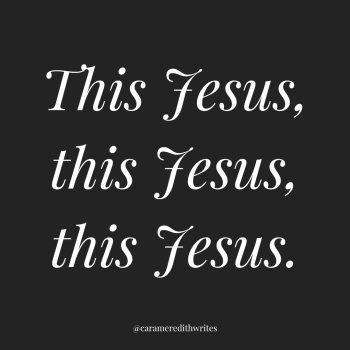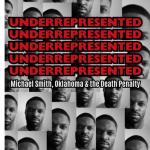Recently I posted a promotion for my new book, Preaching in the Era of Trump, on my Facebook page. Along with an image of the book cover, the copy read: “If ever there was a time to preach the Gospel, that time is now.”
Not surprisingly, many of my “friends” share aspects of my worldview and have been supportive of the work. But not all of my friends are of one mind, nor would I want them to be. I value the opportunity to be challenged by and grow in relation to diverse perspectives. Conversation is key to my theological, hermeneutical and homiletical approaches. So I want to take the opportunity to converse with a response that came from a couple of people who offered such a challenge.
The two persons who independently offered the same comment responded to the title of the book. When the book becomes available I hope they will read it and judge it more fully, but I take their comment seriously even at this early stage. As one of them worded the common concern, “Whatever the era, it is always appropriate to preach the Gospel!” Hoping to move the conversation beyond the tweet-length kind of engagement that has become part of our debate in the public square, I offer two responses that are somewhat paradoxical in relation to each other.
First, there is a sense in which I disagree with an element of the logic I presume to be behind the concern—that is, that the gospel is eternal and unchanging regardless of the historical circumstances. This assumes preachers today speak the same message(s) offered by Moses, Isaiah, Jesus, Paul, Justin Martyr, Augustine, Hildegard of Bingen, Martin Luther, John Wesley, Charles Spurgeon, and Aimee Semple McPherson. A comparison of their speech and writings, however, show great differences among such figures, and for good reason.
A preacher’s job is not simply to repeat God’s good news as if it exists in a vacuum apart from real human need but to bridge the gap between the ancient biblical text and the particular issues facing contemporary hearers, to draw an analogy between the situation originally addressed by the biblical writer and the situation being faced by the preacher’s congregation. To put it in traditional, homiletical-speak (although the language is not without problems), the preacher assumes the core of God’s good news as revealed in Scripture (and especially in the Christ event) is relevant in all ages but must be “applied” in different ways that help the hearers recognize, have faith in, and live out that relevance in different eras.
Differences in religious, physical, psychological, social, and political contexts call for different sorts of homiletical analogies and/or applications. I argue that such a radical shift in our socio-political situation as has occurred with the election of someone whose campaign included a degree of bigotry and hate speech we have not witnessed in a presidential run since the likes of George Wallace requires that preachers must strive to shape new analogies and applications of the gospel in their sermons or fail to serve the full relevance of the gospel.
Second, there is also a sense in which I agree with that element of logic that I presume to be behind the comment that it is appropriate to preach the gospel in every era—that is, that the gospel is eternal and unchanging regardless of the historical circumstances. I would certainly argue that at the core of the gospel is an ethic of love of neighbor that should be preached in every era. Had it been preached fully and forcefully in the era leading up to the 2015-16 election cycle, then there would have been no way so many churchgoers could have played such a large role in putting into the White House a candidate and his staff who use such vile and hateful language in service to racism, homophobia, ableism, Islamophobia, and sexism! The Christian ethic goes far beyond the weak standards of political correctness in its demands on the way we view and treat others, and Christians should strive to elect leaders whose speech and actions most reflect that ethic.
Notice, I am not making an argument that Christians must be Democrats or Republicans, conservatives or progressives. I am not concerned, in this instance, with whether the federal government should be larger or smaller. I certainly recognize that Christians can come down on different sides of policy debates specifically because of their Christian faith.
But I struggle to understand how those who claim to embrace the radical ethic of the Christian faith—the gospel ethic of caring for the disenfranchised, marginalized, and oppressed “others” of society—can claim to have voted for Trump out of Christian values when there were other Republican and Democratic candidates from whom to pick. Voters are used to choosing between “the lesser of evils,” but there is no serious Christian standard by which Trump can be argued to be that choice.
I certainly believe that books promoting the proclamation of the gospel in relation to any age defined by different forces would be appropriate. Perhaps every four years we should get scholars on different sides of the theo-political spectrum to write such books. But scholars and preachers across the whole range of theo-political positions should be on the same page when it comes to responding to the person in the most powerful office in the world making fun of the disabled, stereotyping Mexican immigrants as rapists and drug dealers, appointing advisors who have published hate speech against African Americans and homosexuals, and feeling he has the right to assault women simply because he is a celebrity.
 Rev. Dr. O. Wesley Allen, Jr. is the Lois Craddock Perkins Professor of Homiletics at Perkins School of Theology at Southern Methodist University. Dr. Allen serves as president of the Academy of Homiletics. He earned degrees from Emory University, Yale Divinity School; and Birmingham-Southern College. Previous to Perkins, Dr. Allen served on the faculties of Lexington Theological Seminary and Drew University, and served as a local church pastor and campus minister.
Rev. Dr. O. Wesley Allen, Jr. is the Lois Craddock Perkins Professor of Homiletics at Perkins School of Theology at Southern Methodist University. Dr. Allen serves as president of the Academy of Homiletics. He earned degrees from Emory University, Yale Divinity School; and Birmingham-Southern College. Previous to Perkins, Dr. Allen served on the faculties of Lexington Theological Seminary and Drew University, and served as a local church pastor and campus minister.
His book, Preaching in the Era of Trump (Chalice Press) comes out in e-book April 11 and paperback May 30.


















